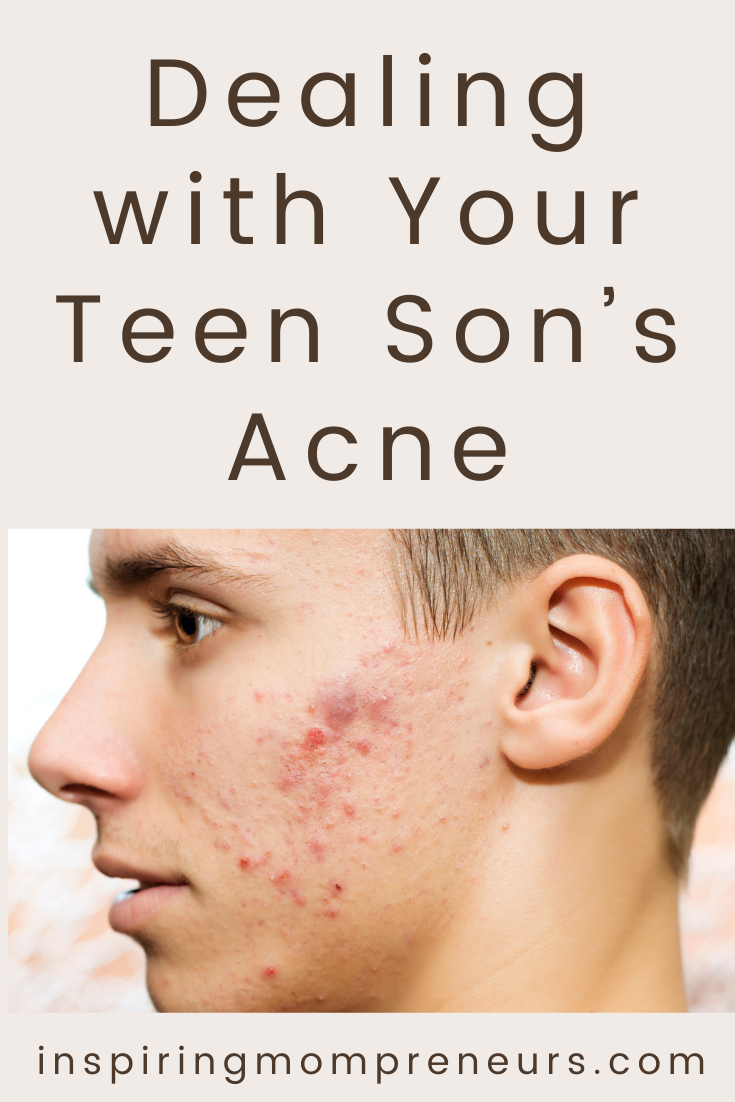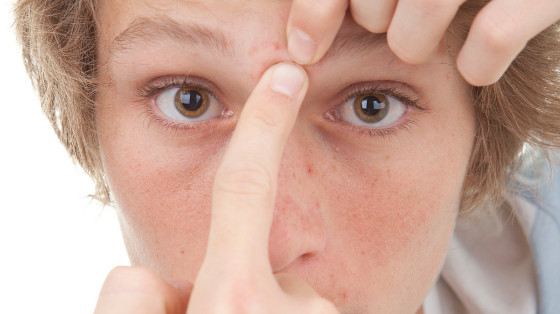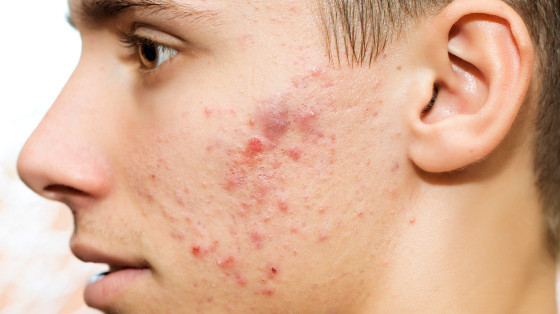If you’ve got a teenage son, you’re probably dealing with a lot of common teenage son behaviours, like a messy room, smelly stuff and lots of video games. You’ve probably also noticed that your son has begun to develop acne, which he may not yet be equipped to deal with. Puberty can be a real drag for your kid and no fun for you, but remember that it happens to everyone — zits and all.
Indeed, teenage acne is extremely common, affecting something like 85 percent of adolescents and young adults. The fact that all of these things are totally normal doesn’t make talking about them any easier, though. That’s why we’re here to help you master the acne issue and help you set your son up for a life of healthy skin and self-confidence.
From finding the right skincare products to keeping him on a solid routine, here’s how to help support your son’s quest for clear skin.
 1. Learn How to Treat It
1. Learn How to Treat It
The most important thing you can do when dealing with your child’s acne is to learn about the treatment process. For most teenage boys, acne can be effectively treated with a very simple routine involving just a few products. Here’s a good routine for teens:
1. Wash:
Use an acne-fighting face wash (a salicylic acid and charcoal face wash is ideal) and wash the face twice a day, once in the morning and once before bed. When in the shower, thoroughly cleanse with a charcoal body wash to target those back and chest zits.
2. Hydrate:
It seems odd to have a teenage boy — who is probably already excessively oily — use a facial moisturizer, but there’s a good reason why he should never skip it. Contrary to what you might think, regular use of face cream can actually help reduce oil.
3. Exfoliate:
Make sure to pepper in an exfoliating product two or three times per week to help regenerate healthy new skin. You can also have him use a peel-off face mask for blackheads to exfoliate and get rid of that deep pore gunk. He will probably even enjoy peeling the mask off and seeing what comes with it. Gross but cool.
2. Address It Gently
It should go without saying, but never make fun of your son or make him feel weird or abnormal for having acne. Address it gently with him and emphasize the impact of healthy skin on his self-confidence and well-being. Most importantly, listen to what he has to say about it and take his concerns seriously.

3. Bring It Up Early
It’s a good idea to talk to your son about acne before it’s a problem, but that’s not always realistic or possible. With that said, this is definitely a “much better late than never” situation. Try to get ahead of it at the first sign of acne or even before he starts getting breakouts. Typically, the first breakouts happen sometime between the ages of 12 and 14.
4. Start with OTC Acne Products
Boys with severe acne may be candidates for prescription topical medications, but these should always be considered a last resort because they have been associated with serious side effects. For example, the popular prescription acne ingredient isotretinoin has been linked to depression, birth defects and extreme sensitivity to the sun. That’s not to say that there are no safe prescription options for teens with acne, only that you should start out with over-the-counter options and go from there. Often, a good OTC routine is enough to seriously clear up skin.
5. Stop Him from Picking and Popping
Your son may be a fan of Dr. Pimple Popper and the many disturbing yet satisfying “popping” videos on YouTube, but make sure to emphasize to him that picking and popping can only worsen acne. The American Academy of Dermatology (AAD) says routine popping can cause permanent acne scars, plus infections and more painful, evident acne.

6. Aim for Simplicity Over All
If your son’s skincare routine involves using eight different products in the correct order three times a day, he probably isn’t going to follow it. And to be honest, we wouldn’t either. That’s why you’ve got to aim for simplicity above all else. Choose a teenager-friendly skincare bundle for oily skin that comes with everything he needs.
7. Patch Test Before Using
Most likely, your son hasn’t done a whole lot of experimenting with skincare products in his life just yet. That means he may not have yet identified any severe irritants or allergens. For this reason, it’s important to test every new product on a small patch of skin before applying it all over. Take it slow and don’t introduce too many new products at once, as this could cause severe breakouts and allergic reactions.
8. Teach General Hygiene
If you’re looking for ways to help your son manage his teenage acne, you’re probably an amazing parent who’s also broached the subject of general hygiene a time or two. Make sure to keep this up, emphasizing the importance of shampooing every day. Greasy hair can lead to greasy skin, which can trigger or worsen breakouts.
9. Not Working? Ask Your Doctor
If you do find that your son’s routine isn’t working, it may be worth it to have him talk to his doctor or dermatologist. They may be able to identify exactly why certain products aren’t working and, if they believe he has a severe case, they may also prescribe medication.
As a parent, the best thing you can do to help your child grow into a strong, self-confident adult is to provide him with the right tools and knowledge he needs to thrive. You’re clearly already doing that, so make sure to give yourself the pat on the back you deserve and don’t be too hard on yourself if finding the right solutions takes a little time! It can take months or even years to figure out what works, and that just comes with the teenage territory.


